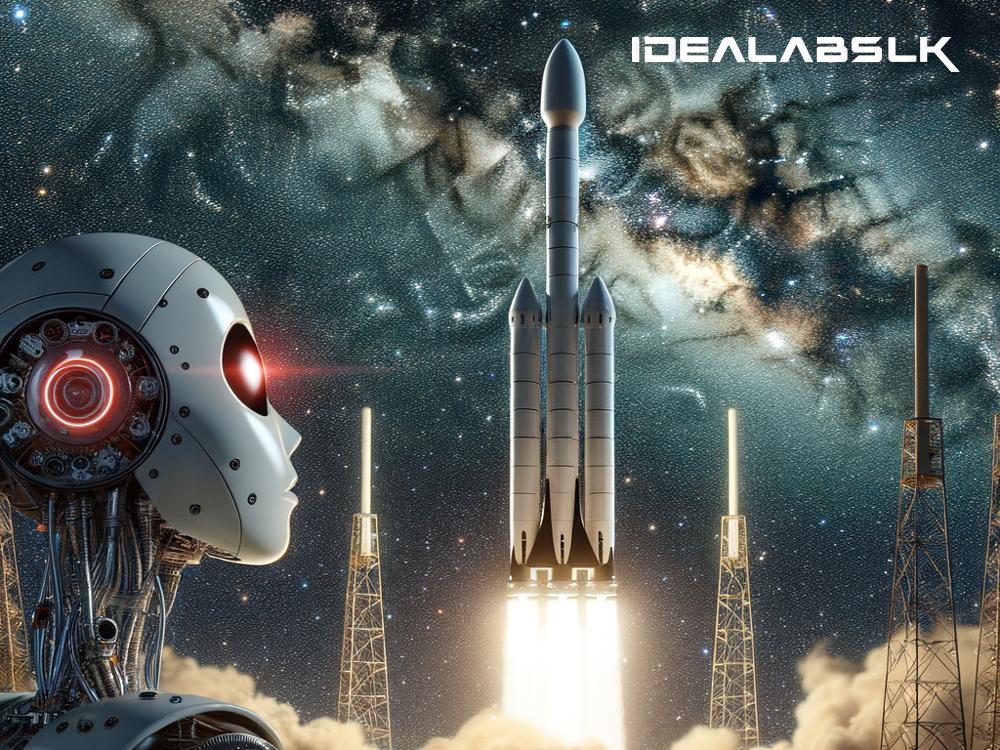Elon Musk’s SpaceX and the Role of Artificial Intelligence in Future Space Missions
In the realm of space exploration, SpaceX, led by the visionary entrepreneur Elon Musk, has become a household name, transforming dreams into reality and making space travel seem closer than ever. But there's an invisible force powering these advancements, silently shaping the future of space missions: Artificial Intelligence (AI). This post delves into how SpaceX is utilizing AI and what role it will play in the unprecedented journey to the stars.
SpaceX's Odyssey
Founded in 2002, SpaceX started with the dream of making space travel affordable and ultimately colonizing Mars. This dream seemed far-fetched at the time, but SpaceX has proven time and again that with innovation, even the sky isn't the limit. From launching satellites to sending astronauts to the International Space Station (ISS), SpaceX has made significant strides, thanks, in part, to AI.
AI in SpaceX Missions: A Silent Navigator
AI, though not always in the spotlight, plays a crucial role in the success of SpaceX missions. From optimizing flight paths to ensuring landing precision, AI systems are the unsung heroes. For example, the Falcon rockets and Dragon spacecrafts rely heavily on AI for autonomous flight and docking procedures. These technologies are not just about crunching numbers; they're about making real-time decisions based on dynamic conditions, something humans could hardly achieve with the same speed and accuracy in the vast and unpredictable expanse of space.
Let's break down some key areas where AI is fundamental in SpaceX's operations:
-
Autonomous Navigation: Space missions are complex, requiring precise control and navigation. AI systems analyze vast amounts of data to make decisions in milliseconds, adjusting the spacecraft's path, speed, and orientation to dock with the ISS or land back on Earth with pinpoint accuracy.
-
Predictive Maintenance: Spacecraft are equipped with thousands of parts, any of which could potentially fail. AI helps predict these failures before they happen by monitoring the health of each component, ensuring that missions don't face unexpected delays or catastrophic failures.
-
Simulation and Training: Before any mission takes off, AI is used to simulate countless scenarios, helping engineers to optimize design and mission planners to anticipate and prepare for potential obstacles. These simulations are also used for astronaut training, providing realistic and varied experiences.
The Future: AI's Expanding Role in Space Exploration
The prospective role of AI in space exploration is not just limited to current applications; it's poised to be the cornerstone of future missions, including the ambitious goal of colonizing Mars. Let's envision some of these futuristic roles:
-
Deep Space Exploration: AI could command missions to the far reaches of our solar system and beyond, where communication delays with Earth make human control impractical. These AI systems would make decisions on the fly, exploring celestial bodies and gathering data autonomously.
-
Decision-Making: AI might soon not only suggest but also decide the best course of action in dynamic and critical situations, potentially saving missions and lives.
-
Habitat Construction: On Mars, AI-driven robots could begin the construction of sustainable habitats well before the arrival of human colonists, analyzing the terrain and utilizing local resources for building materials.
-
Life Support: AI systems could manage life support systems in extraterrestrial habitats, constantly adjusting parameters to ensure the safety and comfort of the inhabitants, all while optimizing resource use.
Conclusion
SpaceX's use of AI is just a glimpse of what's to come in the future of space exploration. As AI technology progresses, its integration into space missions will become deeper and more crucial. We’re standing at the dawn of a new era, where AI is not just a tool but a companion in our quest to explore the unknown.
Elon Musk's SpaceX is undoubtedly leading the charge, but the journey to the stars will be a collective effort, with AI as our navigator. The potential is limitless, and the role of AI in future space missions promises to turn what was once science fiction into reality. Let's watch this space (no pun intended) as we embark on this exciting voyage into the future.

